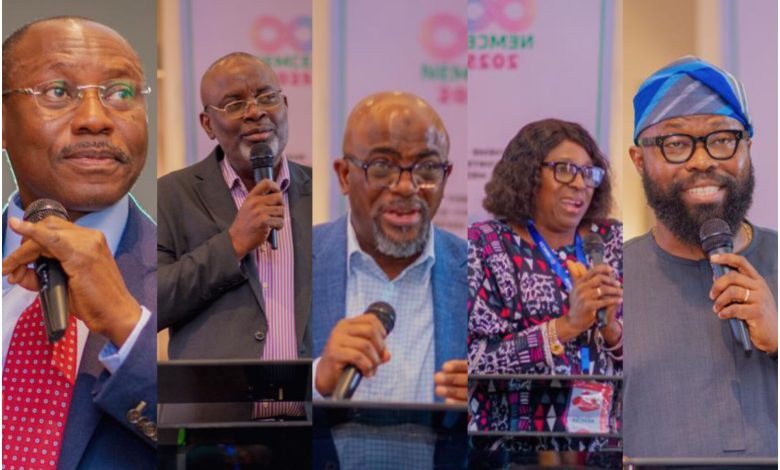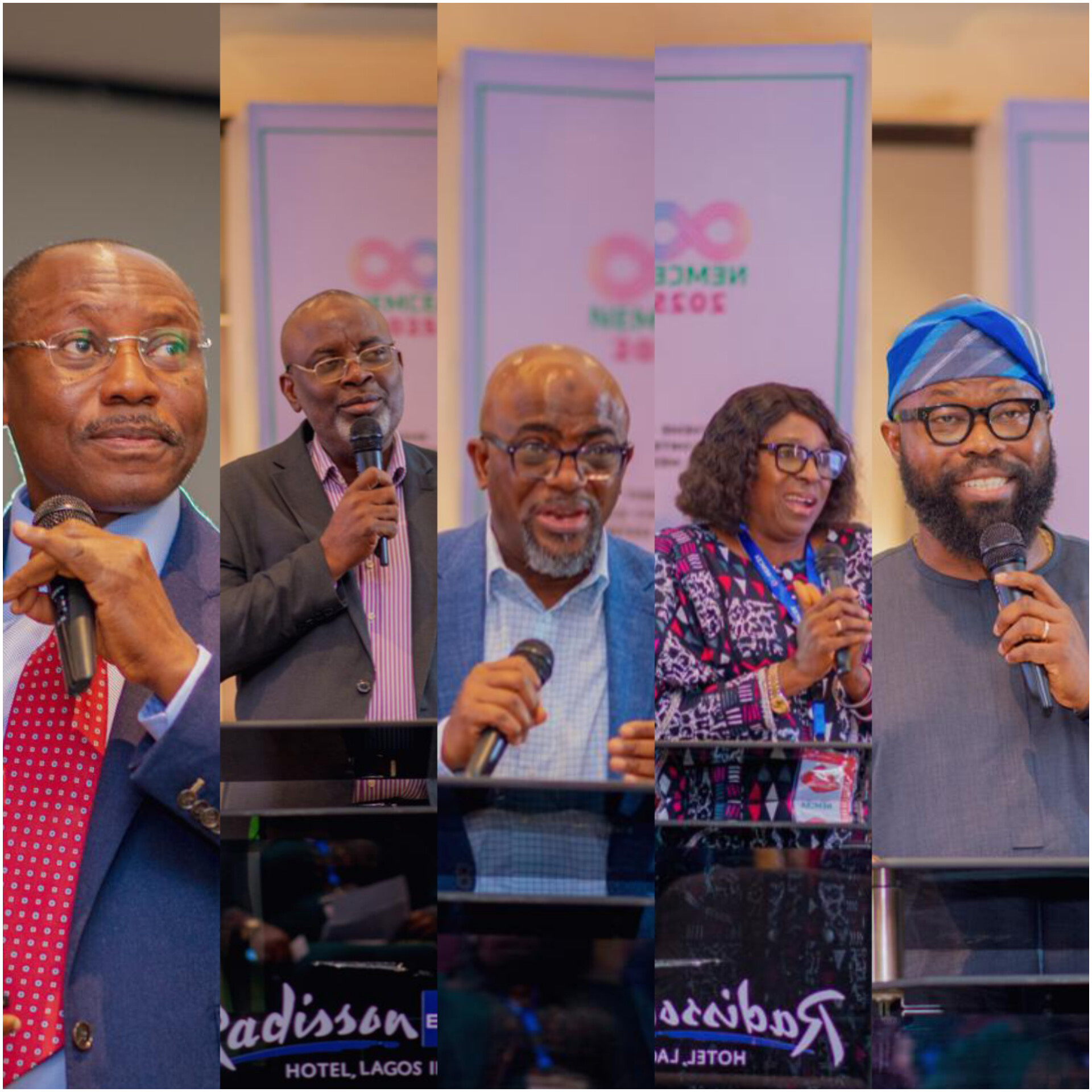Industry Leaders Call for Collaboration and Regulation to Sustain Nigeria’s Content Boom


By Azeez Disu
Top executives from Nigeria’s advertising and media sectors convened at the fourth edition of the Nigeria Electronic Media Content Exhibitions and Awards (NEMCEA) 2025, calling for unprecedented collaboration and adherence to regulations to navigate the challenges and opportunities of a fragmented media landscape.
Held at the Radisson Blu Hotel in Ikeja, Lagos, the event, themed “Sustainable Content Creation in a Fragmented Media Space,” saw leaders from regulatory bodies and key industry associations emphasize that a united front is essential to harness Nigeria’s creative potential and translate its “soft power” into sustainable economic value.
Lanre Adisa, President of the Association of Advertising Agencies of Nigeria (AAAN), highlighted the rise of the “creator economy,” which he noted is built upon the foundation of the traditional creative industry.
He argued that the path forward is clear: “We need to work together and you cannot work in silos.. this is the only way to move forward as an industry”. Citing India and South Africa as examples where cooperation between advertising, film, and music has led to global content domination, Adisa stressed that Nigeria possesses immense soft power that is yet to be fully utilized. “You go outside Nigeria and the amount of adulation people have for our content is unbelievable, almost embarrassing. But what do you do with soft power?” he questioned, asserting that the content creators have the power to shape the global perception of Nigeria.
Providing a sharp business perspective, Seni Adetu, Chairman of Algorithm Media, warned that passion alone is insufficient. “We are in business to grow shareholder value sustainably,” he stated, adding that content creators are the “next big thing in Nigeria”.
Adetu identified a dual fragmentation challenge: the proliferation of media platforms and the vast number of creators, which he estimated at two million in Nigeria. This, he argued, is a significant business problem. “Scale by definition is the enemy of fragmentation,” he explained, noting that the lack of scale leads to the commoditization and severe underpricing of creative work. He pointed to a “crab mentality” in the industry that results in “value destruction”. Adetu urged content owners to collaborate to build scale, which would give them “more mouth” in the industry and prevent exploitation.
Dozie Okafor, President of the Media Independent Practitioners Association of Nigeria (MIPAN), offered an optimistic view on fragmentation, calling it an opportunity rather than a weakness. He described it as a sign that content is “alive,dynamic, and vibrant”. For Okafor, sustainability is a “lifeline for our industry,” which requires investing in Nigerian talent—writers, producers, and directors—to empower them to compete globally. He echoed the call for collaboration, stating, “collaboration needs to be a currency for our growth”.
He urged policymakers and regulators to “create frameworks that encourage innovation, protect creativity, but ultimately open the doors for Nigerian content to shine”.
Speaking from the perspective of advertisers who hold “the wallet and the brains,” Osamede Uwubanwmen, President of the Advertisers Association of Nigeria (ADVAN), welcomed the diversity of content, as brands “need options” and “an array of offers”. He strongly supported the theme of collaboration to take Nigerian creativity global. “We own Africa in terms of content, in terms of music, in terms of creativity. We then need to take it out,” Uwubanwmen declared. He cautioned against protectionist policies, drawing a parallel with South Africa, whose companies were forced to innovate internally and then expanded, arguing that Nigeria should collaborate and not “shut down our economy”.
The Advertising Regulatory Council of Nigeria (ARCON), represented by Deputy Director of Regulation Mrs. Emme Akande, delivered a crucial message on compliance. While congratulating the industry on its creativity, she reminded attendees that content must meet regulatory standards. She stated unequivocally that any advertisement appearing in content “must be legal, honest, truthful and decent”. ARCON is actively seeking the industry’s support to ensure all advertisements are vetted and approved by the Advertising Standards Panel before media exposure. To underscore the urgency, Akande shared a personal experience of clicking on a seemingly innocent article about health benefits, only to be led to “raw pornography”. “What are we doing?” she asked, highlighting the potential harm to children and the need for stricter content governance.
The consensus at NEMCEA 2025 was a powerful call to action. For Nigeria’s burgeoning content industry to achieve sustainable growth and global dominance, its numerous and talented creators must move beyond individual efforts. The future, as envisioned by its leaders, lies in strategic partnerships that create scale, a commitment to quality that commands value, and a responsible approach that adheres to national regulations, ensuring the nation’s vibrant stories can truly and safely shine on the world stage.


